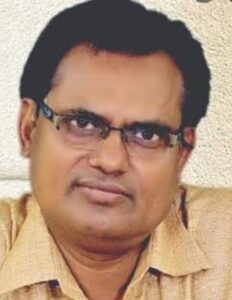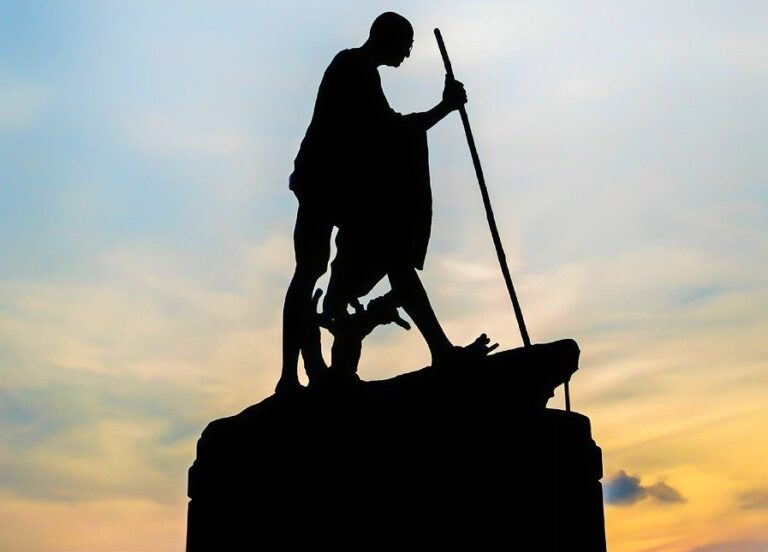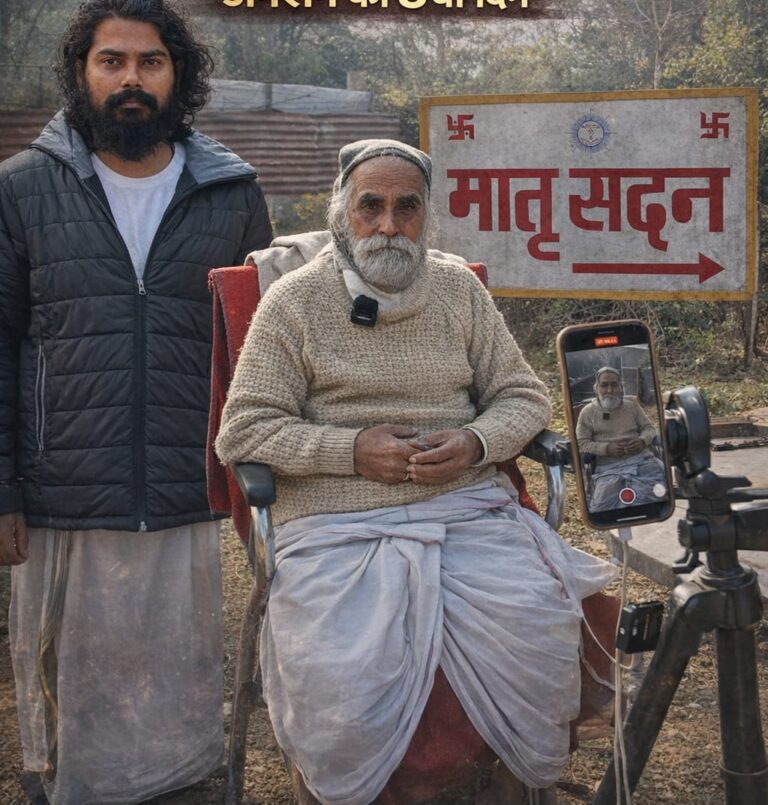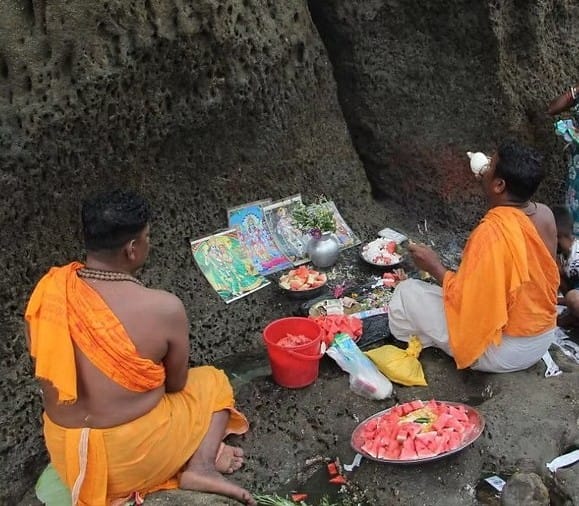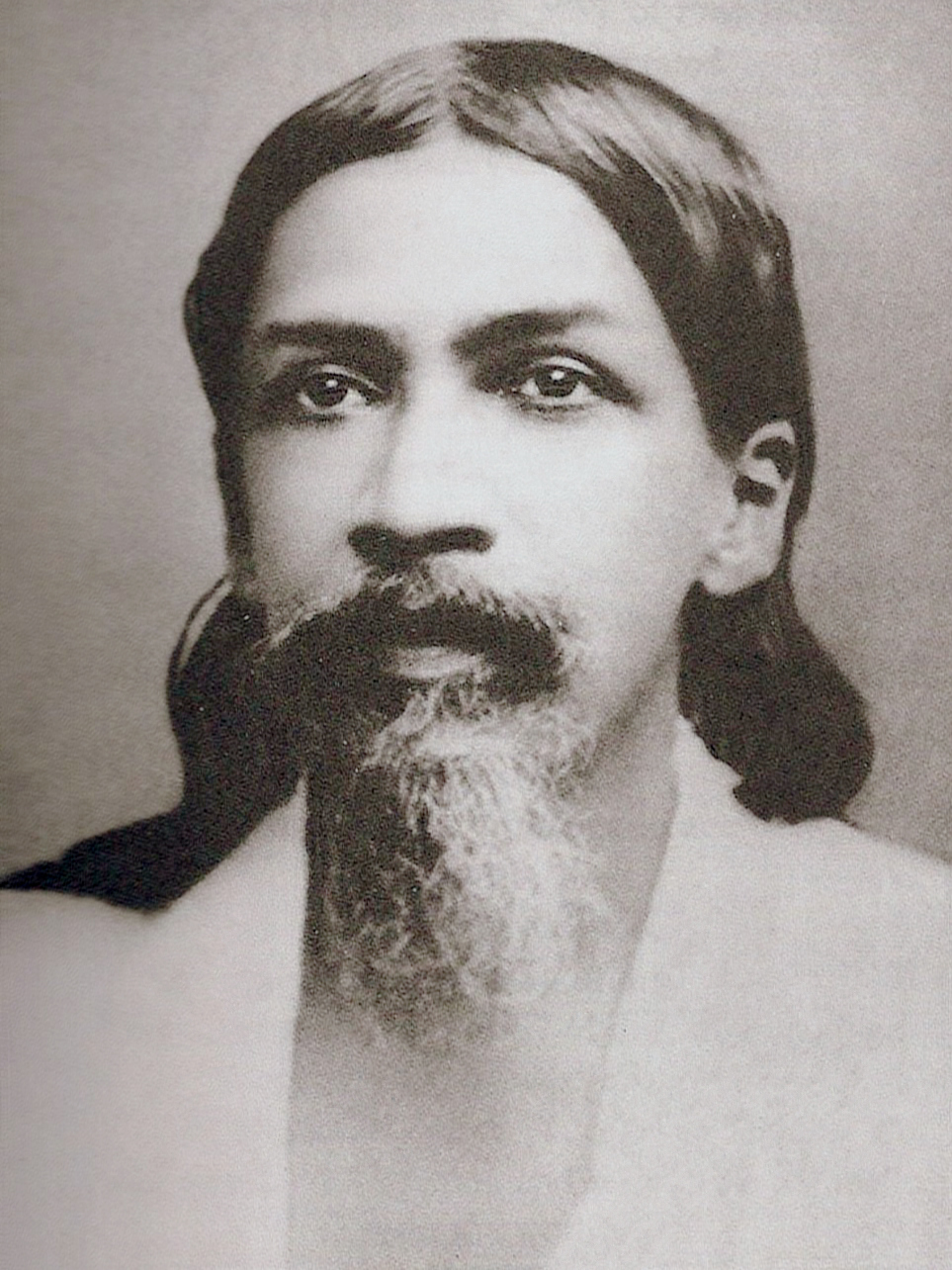
Aurobindo Ghosh
Sri Aurobindo to me, is the greatest mind born in the mortal body after great Adi Shankaracharya!
Stepping into juvenility, a bonanza awaited me: One of the tallest advocates of Calcutta then had his readership card allotted to him by the National Library, and providentially the card came my way! He handed it to me to avail of the benefits ensuing from the same. Thus began my eventful journey into the world of Swami Vivekananda. Some of his important books I could lay my hands upon, included My Master As I Saw Him, by sister Nivedita.
My entire obsession was with Swami Vivekananda. It was at graduation, albeit for the first time I heard the name Rishi Aurobindo. Those were the golden days in Calcutta. Nani A Palkhivala, a renowned jurist and an unparalleled public speaker would visit Calcutta to deliver his budgetary speech at the Netaji Indoor Stadium. I too, more by sheer excitement and curiosity, rather than by genuine interest, became an integral part of his bandwagon, cheering and clapping while great Palkhivala would mesmerise the audience into spellbinding mode.
Coincidentally, reading We the People, of Palkhivala, I stumbled upon a vital piece of information: Sri Aurobindo, Palkhivala outrightly dubbed, as the greatest mind. Unequivocally, my interest and a spontaneous adoration for Sri Aurobindo took a tangible shape in my heart, yet I remained out of the periphery of my deeper acquaintance with the intellectual giant whose transformation from a revolutionary into a mystic Yogi, had a roller coaster ride.
A while later, serendipitously though, to have a definitive glimpse into the intellectual and spiritual depth of Maharshi Sri Aurobindo, I bought a copy of The Life Divine. But sooner had I glimpsed into the first page, the behemoth of linguistic bombast transfixed me into the state of irreconcilable compromise: I stood a pygmy in front of the colossus that The Life Divine was!
I knew I had to wait for years before the maturity to negotiate with the linguistic and conceptual depth that The Life Divine so seamlessly encompassed. However, my intellectual immaturity brought about by my linguistic impoverishment, was seldom a deterrent to impress upon me the stark reality: The Life Divine was the mother of all spiritual books, the reading of which, far less its understanding, warranted the linguistic enrichment, apart from the conceptual clarity. Neither of which I possessed then. Flipping through the pages, my gaze would settle on a paragraph, stubbornly determined to comprehend it, however, as my gaze would settle on the next paragraph, I would forget the connotation of the preceding paragraph. Thus my sincere endeavours to know Sri Aurobindo fizzled out in no time.
So far, so good. Barely twenty-five days ago, I had an interaction with Biresh Babu, the librarian of Ramakrishna Mission. I intended to know whether the library boasted any books on Sri Aurobindo. He instantly produced the book Builders of Modern India Sri Aurobindo by MP Pandit. The book proved extremely informative, and full of knowledge. Sundry many things I never knew, came tumbling out before me. Strikingly, the forlornness of Mrinalini Ghose, the wife of Maharshi Sri Aurobindo, deeply left indelible footprints in my mind: how the incident of Yasodhara, the wife of Buddha, knocked at my mental door when I read the tragic death of Mrinalini Ghose, the most distressed woman whose unparalleled sacrifice for the evolution of an intellectual Aurobindo Ghosh into Maharshi Sri Aurobindo, indeed touched my heart.
Yasodhara, the wife of Buddha, at least had the satisfaction of getting diksha from her husband, yet an unfortunate Mrinalini was deprived of the same and left this world in sheer vacuity. Worse still, after much persuasion, when finally she was invited to Pondicherry, she died on her way from Ranchi to Calcutta, after having contracted influenza.
Incidentally, Mrinalini had to live with her parents most of the time, while Sri Aurobindo was fighting for the nation’s independence as a prominent revolutionary. In the process of her loneliness, she would visit Mother Sharda Devi, the wife of Sri Ramakrishna Paramahansa, Herself a very evolved soul. Sharda Devi would lovingly refer to Mrinalini as Bau Ma, the affectionate term used for the daughter-in-law in Bengal because she considered Sri Aurobindo as her son. Before bidding goodbye to this world, Mrinalini intended to take Diksha from a Swamy of Ramakrishna Mission. When permission to that effect was sought from Maharshi, he asked her to wait, as he would send her the spiritual instructions. Before her death, she had sold her ornaments and donated them to Ramakrishna Mission. In the wake of her death, whatever ornaments she had left behind with her friends, were sold out, and donated rupees two thousand, the proceeds of sale, under the corpus of her name, under the instruction of Sri Aurobindo.
Significantly, the real transformation from a revolutionary Aurobindo into Sri Aurobindo, actually began when he was arrested in the Alipur trial case. Before his imprisonment, he came in contact with Lele, the Yoga teacher, whom his younger brother Barin Ghose had located for him. However, in Alipur prison, Sri Aurobindo had the divine vision of Lord Sri Krishna, who showed him how He alone was in every jeeva; he could see only Sri Krishna everywhere: in every prisoner, he could see Sri Krishna. It was in prison Sri Krishna spoke to him; and assured him to concentrate on the work that He intended Sri Aurobindo to do on His behalf. He even assured him that He brought him to the prison to show him the real picture of this world. He assured him that nothing would happen to him and that He would take care of everything.
Surprisingly, Chittaranjan Das, a thriving lawyer, appeared from nowhere to fight the case for Sri Aurobindo, while leaving aside his work. Sri Aurobindo saw in the court– everyone from a judge to a lawyer was only Sri Krishna. There, Sri Krishna showed him how He alone existed, in good as well as in evil. Nothing exists apart from Him. It was Sri Krishna who directed him to go to Chandannagar and later, to Pondicherry (Puducherry).
Significantly, the integral Yoga, which Sri Aurobindo evolved, for the good of humanity, was the fulfilment of the ardent wish of Sri Krishna. Sri Aurobindo had sought to give something refreshing to humanity: he thoroughly disagreed with the asceticism and monasticism of Buddha and Shankara; he, in fact, intended to bring everyone indiscriminatorily into the path of integral Yoga, a surer means to reach the supramental stage. The evolution of the ordinary mind into a supermind was feasible through Sadhana. Unequivocally then, his alienation from the National Movement into the rigorous Sadhana–first at Chandannagar and then, to Pondicherry, –was the call of the divine to find a path for the supramental evolution to govern this universe. This transformation, Sri Aurobindo was convinced, began with the process of integral Yoga. Another very important feature of Swami Vivekananda’s spirit visiting him in Alipur jail to guide him towards certain fundamental lessons in Yoga.
– to conclude
*Author, Academician and a Public Intellectual.


